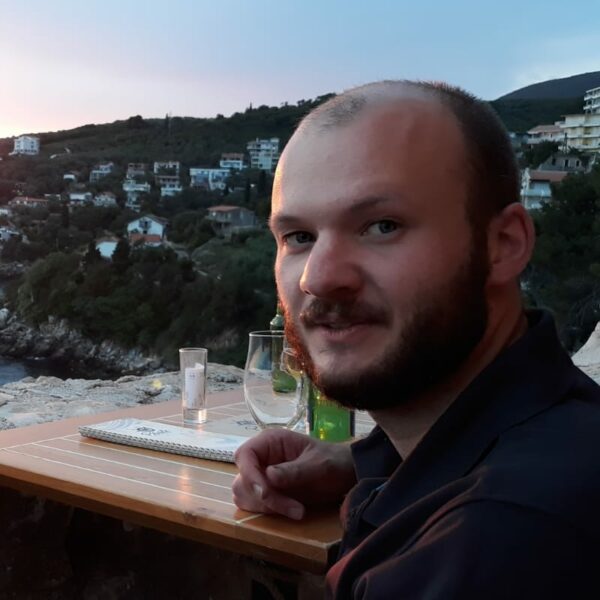
Markus Rudolfi
studied Sociology, Psychology, and Human Geography in Jena and Frankfurt am Main. He is a Research Associate at the group for interpretative social research at the Goethe University Frankfurt. He conducted ethnographic research on the participation of materiality in experimental building and living in Germany and Israel. Currently, Markus is working on his PhD thesis on more-than-human sociality at a Czech-German nature conservation area (Bavarian Forest/Šumava). His fields of interest span between science and technology studies, political ethnography, and environmental sociology.
Research
EcoSocMan: Awareness through Science Education for Ecosystem Ecology, Society and Management (12/2023–11/2026, ERASMUS+ Cooperation Partnership)
The aim of this three-year project is to promote learning processes regarding environmental changes induced by climate change in selected areas of Europe. Additionally, it aims to contribute to the discourse on ecological issues in public discussions. The programme consists of three summer schools, each lasting several days, and is being run in collaboration with partners from Estonia (Eesti Maaülikool), the Czech Republic (University of South Bohemia), France (Université d’Aix Marseille), Germany (University of Ulm, simpleFilm GmbH) and Ukraine (Ukrainian National Forestry University). Through these and other activities, students, teachers, and experts will exchange ideas and develop a transnational European network for transdisciplinary and cooperative learning. Stakeholders from the natural and social sciences, as well as the public, will be integrated. The University of Ulm is coordinating the project, and Markus Rudolfi is the contact person for the project at GU.
Doing Rewilding: Following Conservation Biologists through Multispecies Resurgence (since 06/2020, PhD project)
The PhD project engages ethnographically with the production of knowledge about transboundary nature protection and rewilding in times of climate change and increasing biodiversity loss. Central to this knowledge production are institutions that scientifically engage with the conservation, abundance and resettlement of species. By assembling selected cases about transboundary conservation, the project develops a practice-based approach to how rewilded and resurgent natures are enacted by conservation biologists situated in a Czech-German context. A special focus is put on the role of historical events such as natural disasters and anthropogenic disturbances that have shaped the area of investigation. Taking such historical events into account allows to highlight the relevance of and relation between human and nonhuman agency in dynamic ecological processes. The project seeks to contribute to the body of empirical sociological research that explicitly includes nonhuman agency for a more response-able conceptualisation of “sociality” in times of ecological crisis.